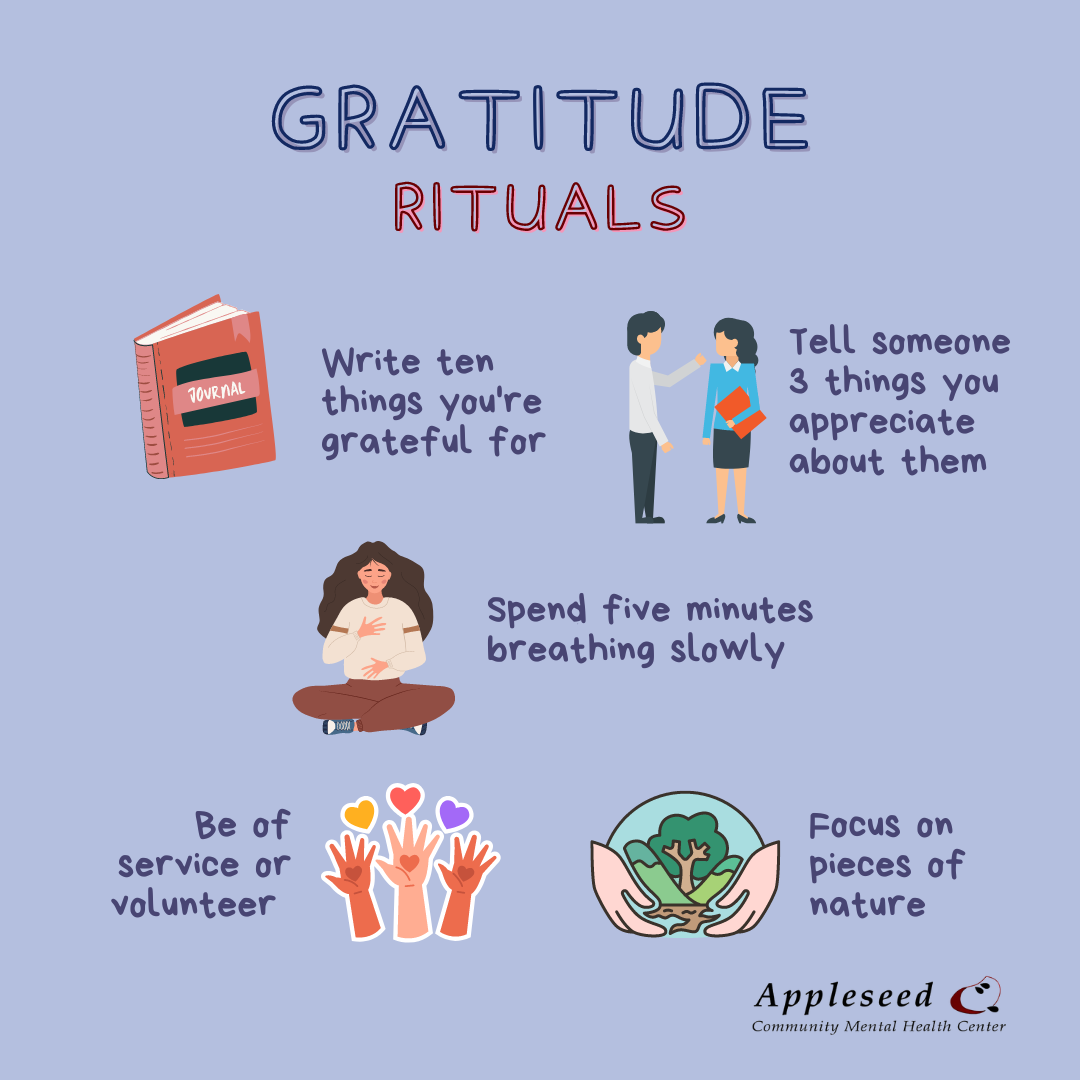This is Thanksgiving week. Gratitude is the quality of being thankful and the readiness to show appreciation and return kindness. The Greater Good Science Center reports that over the past two decades, studies have consistently found that people who practice gratitude report fewer symptoms of illness, and depression have more optimism, happiness, and stronger relationships.
Keeping a thankfulness journal is a great way to cultivate this attitude. Three days per week write down five things you are thankful for. For example, write about the positive people in your life and where you’d be without them.
In 2017 the Greater Good Science Center conducted a study in which participants either
- received counseling,
- counseling and journaled about their negative feelings or
- counseling and wrote a letter of gratitude once per week to someone. Those who wrote the letter of gratitude reported significantly higher levels of mental health at four and twelve weeks after the study.
If you want to do something right now to improve your mental health, I suggest you work at cultivating an attitude of thankfulness.
Harvard Medical School writes “The word gratitude is derived from the Latin word gratia, which means grace, graciousness, or gratefulness. Gratitude encompasses all of these. Gratitude is a thankful appreciation for what you receive...tangible or intangible. With gratitude, people acknowledge the goodness in their lives. In the process, people usually recognize that the source of that goodness lies ...at least partially... outside themselves.
Gratitude also helps people connect to something bigger than themselves. Make a list of all the people who have made a positive difference in your life and then call or write to them and say thank you.”
According to the Greater Good Science Center “Gratitude allows us to celebrate the present. It helps us appreciate the value of something, and when we appreciate the value of something, we extract more benefits from it; we’re less likely to take it for granted. Gratitude allows us to celebrate goodness.
Today, try focusing your thoughts and actions on appreciating the things and people in your life you are thankful for. Take the time to write a few thank you cards. It will lift you and another up.
According to the Greater Good Science Center, “Grateful people are more stress resistant. There are several studies showing that in the face of serious trauma, adversity, and suffering...if people have a grateful disposition...they’ll recover more quickly. Gratitude gives people a perspective from which they can resiliently interpret negative life events and guard against stress and anxiety. Today and this weekend try practicing thankfulness. Make lists of the people-and-things-that-have-blessed-you and focus your thoughts on them.
This week especially, put thankfulness into practice.
https://greatergood.berkeley.edu/article/item/how_gratitude_changes_you_and_your_brain
https://www.health.harvard.edu/healthbeat/giving-thanks-can-make-you-happier
https://greatergood.berkeley.edu/article/item/why_gratitude_is_good
https://greatergood.berkeley.edu/article/item/why_gratitude_is_good
-Jerry Strausbaugh, EdD, LPCCS, Executive Director







